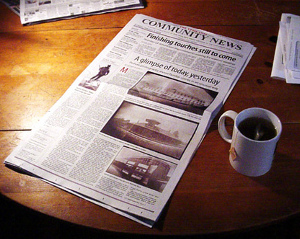
The Journal of Risk Research has published study results asserting a strong correlation between whom people accept as experts and whether or not the expert espouses a position the person agrees with. In other words, people tend to listen to experts who tell them what they want to hear.
On the surface, this isn’t too surprising, and it would be easy to dismiss this as a natural tendency for people to be intellectually lazy. After all, it requires a lot of brain power to analyze and refute contrary arguments (or a lot of emotional strain to keep from wrapping your fingers around the other person’s neck).
Yet there is a more complex issue underlying this phenomenon, and significant stakes to it in the political arena. Many of the intractable issues facing us today have competing sets of experts advising two polar opposite strategies. From economics to global warming, we are besieged with diametrically different expert opinions. How are we supposed to decide who to trust?
The vast majority of us lack the domain expertise as well as the time to vet expert sources of information. Is this scientist or this economist telling the truth or at least being honest about what is known versus what is speculation or prediction on his part? We likely can’t tell from listening to the expert.
A secondary strategy used is to weigh the volume of experts. If you have 20 people telling you one thing and 2 people telling you another, the best bet is to side with the majority. But in a sea of 24 hour news, political action committees, and the Internet, it has become impossible to even gauge the volume. There might be 10, 256 on one side and 6,857 on the other, but no one is going to bother to count.
So we’re left with trusting the source of the expert. We are left having to trust that CNN or the NY Times has done their homework and is being honest. But given that we all have particular trusted sources for news and information we go to time and again, this places an enormous amount of power in the hands of the information brokers and distributors. Power that some are clearly abusing.
It may not be feasible to verify each expert’s credentials, nor even practical to count the experts on each side of an issue. But it is reasonable to do your homework on your frequent sources of news. Remember, caveat emptor is is still sound advice, even if all you’re buying is someone’s credibility.

One thought on “The expert dilemma: who should you trust?”